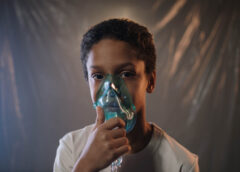Today, the U.S. Food and Drug Administration is providing an update related to the June 14, 2021, recall of certain Philips Respironics ventilators, continuous positive airway pressure (CPAP) and bilevel positive airway pressure (BiPAP) machines.
“Ensuring patients and providers have the most up-to-date information regarding the recall of these critical devices is a top priority for the FDA,” said Jeff Shuren, M.D., J.D., director of the FDA’s Center for Devices and Radiological Health. “We recognize that patients rely on these devices, and we are closely monitoring the company’s actions to ensure that the issues are resolved in a timely manner given the impact on patients. We are committed to continuing to regularly update the public about the status of this recall, including any new recommendations or actions regarding Philips Respironics’ devices.”
Earlier this year, Philips Respironics initiated a recall of certain ventilators, CPAP and BiPAP machines due to potential health risks related to polyester-based polyurethane sound abatement foam used in the devices. This particular foam may break down and can result in serious injury, which can be life-threatening, cause permanent impairment and require medical intervention to prevent permanent injury to users.
In response to the recall, the FDA recently conducted an inspection of a Philips Respironics’ manufacturing facility to determine what may have caused or contributed to the foam issues and assess adherence to the agency’s requirements for quality manufacturing. FDA inspections are designed to include the review and evaluation of records, staff training, facility operations, medical device production and testing, and the systems in place to ensure product quality. During the inspection, the FDA investigator made several observations that are outlined in an inspection closeout report, also known as an “FDA Form 483.” The FDA investigator provided a list of their observations to the company. An FDA investigator’s list of inspection observations does not constitute a final FDA determination of whether any condition is in violation of the Federal Food, Drug, and Cosmetic Act or any of its implementing regulations. The FDA will review the company’s response and the totality of information available to the agency in determining appropriate next steps.
Following the initial recall, Philips Respironics developed a plan to repair the polyester-based polyurethane foam in the recalled CPAP and BiPAP devices with a different, silicone-based foam. The FDA initially approved this plan based, in part, on testing the company provided to the FDA in June on the new foam.
However, during the manufacturing facility inspection, the FDA obtained additional information, not previously available to the agency, regarding the silicone-based foam used in a singular, similar device marketed outside the U.S., which failed one safety test for the release of certain chemicals of concern, called volatile organic compounds (VOCs). Similar testing provided by Philips Respironics to the FDA on devices authorized for marketing in the U.S. had demonstrated acceptable results. The FDA has requested that Philips Respironics retain an independent laboratory to perform additional testing to determine what, if any, potential safety risks may be posed to patients by the silicone-based foam.
The FDA is aware that patients have already received devices with silicone-based foam as part of the repair and replace program. At this time, the agency does not have sufficient information to conclude whether the silicone-based foam being used in the repaired devices poses any risk to patients in the U.S.
Currently, while this independent testing is performed, the FDA does not recommend that patients who have participated in the repair and replace program discontinue use of their product. The FDA has reached this determination based on an overall benefit-risk assessment. At this time, the agency has determined that discontinuing use of one of these devices may be more harmful to a patient’s health and quality of life. The results from the independent testing are needed to determine if the silicone-based foam used in the repaired devices does in fact present any risks to patients, and the FDA will communicate those results to the public as soon as they are available. Patients who have additional concerns should talk to their health care provider about the plan for their care and treatment.
As previously communicated, the FDA recommends that patients currently using a recalled device that has not yet been repaired and replaced consult with their health care provider if they have additional questions or concerns to further determine whether patients should continue using the device, switch to another product or stop use.
The agency recognizes that many patients will have questions about what this information means for the status of their devices. The FDA has worked with patients and health care professional organizations, including the American Sleep Apnea Association, the COPD (chronic obstructive pulmonary disease) Foundation, the Muscular Dystrophy Association, the Mended Hearts, Inc. and the American Academy of Sleep Medicine, and has included this feedback in the updated “Frequently Asked Questions” to provide helpful information to the public.
Additional Resources:
- Philips Respironics FDA Form 483
- Certain Philips Respironics Ventilators, BiPAP, and CPAP Machines Recalled Due to Potential Health Risks: FDA Safety Communication
- Philips Respironics CPAP, BiPAP, and Ventilator Recall: Frequently Asked Questions

Rod Washington: Rod is a blogger, writer, filmmaker, photographer, daydreamer who likes to cook. Rod produces and directs the web series, CUPIC: Diary of an Investigator. He also produces news and documentary video projects. Check out his podcast StoriesThisMoment at https://m3e.d71.myftpupload.com/stm-tncn-podcasts/


